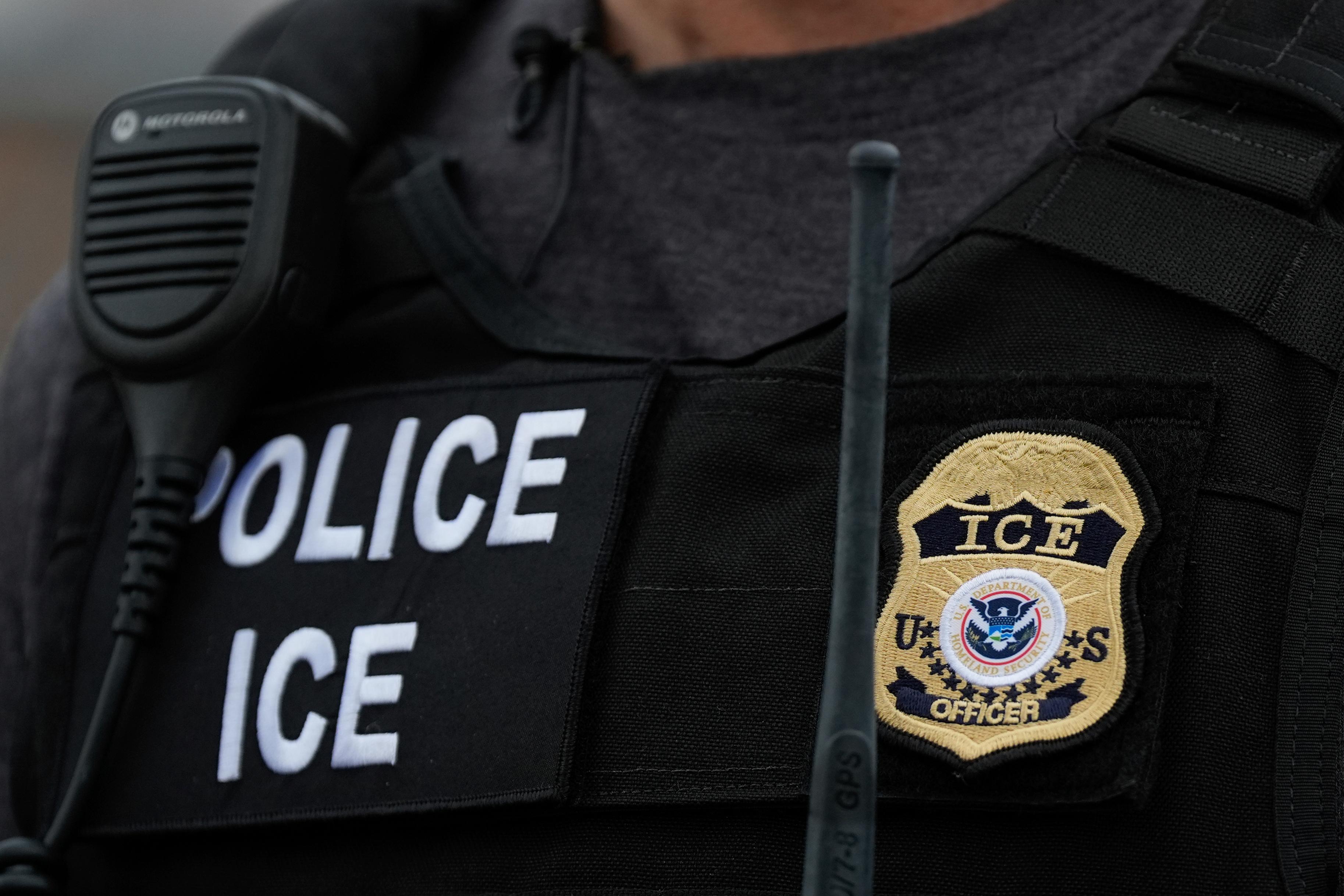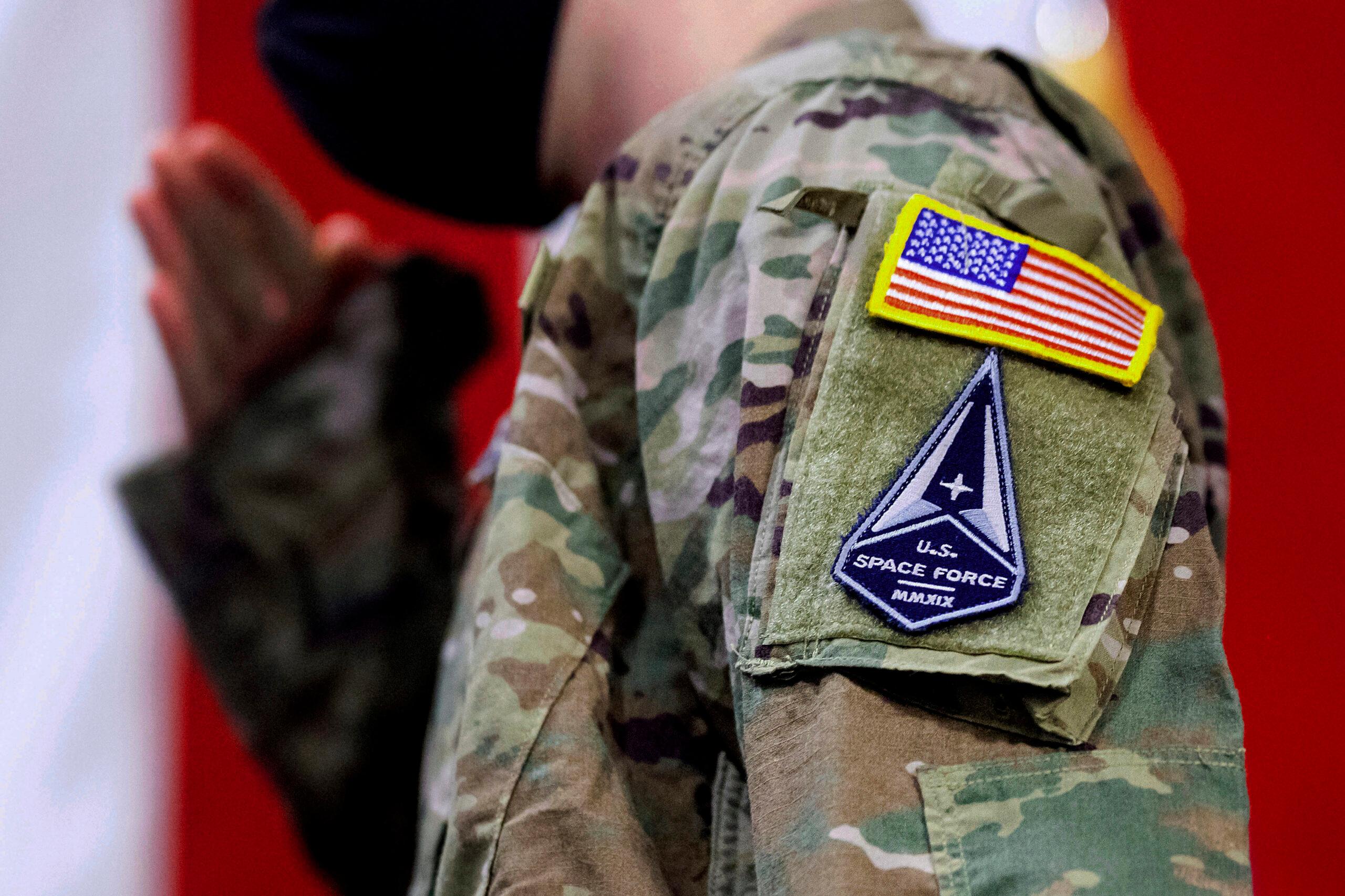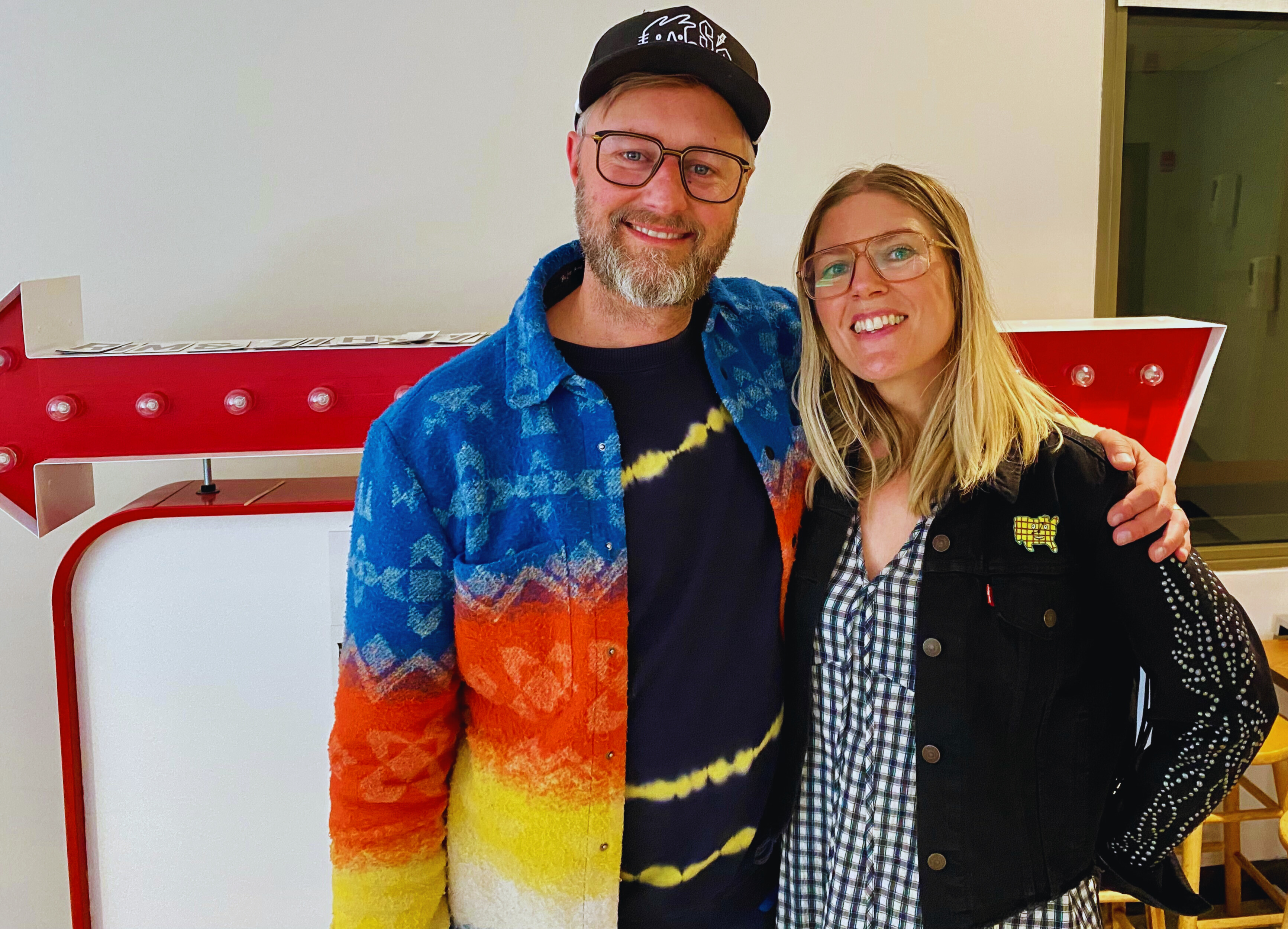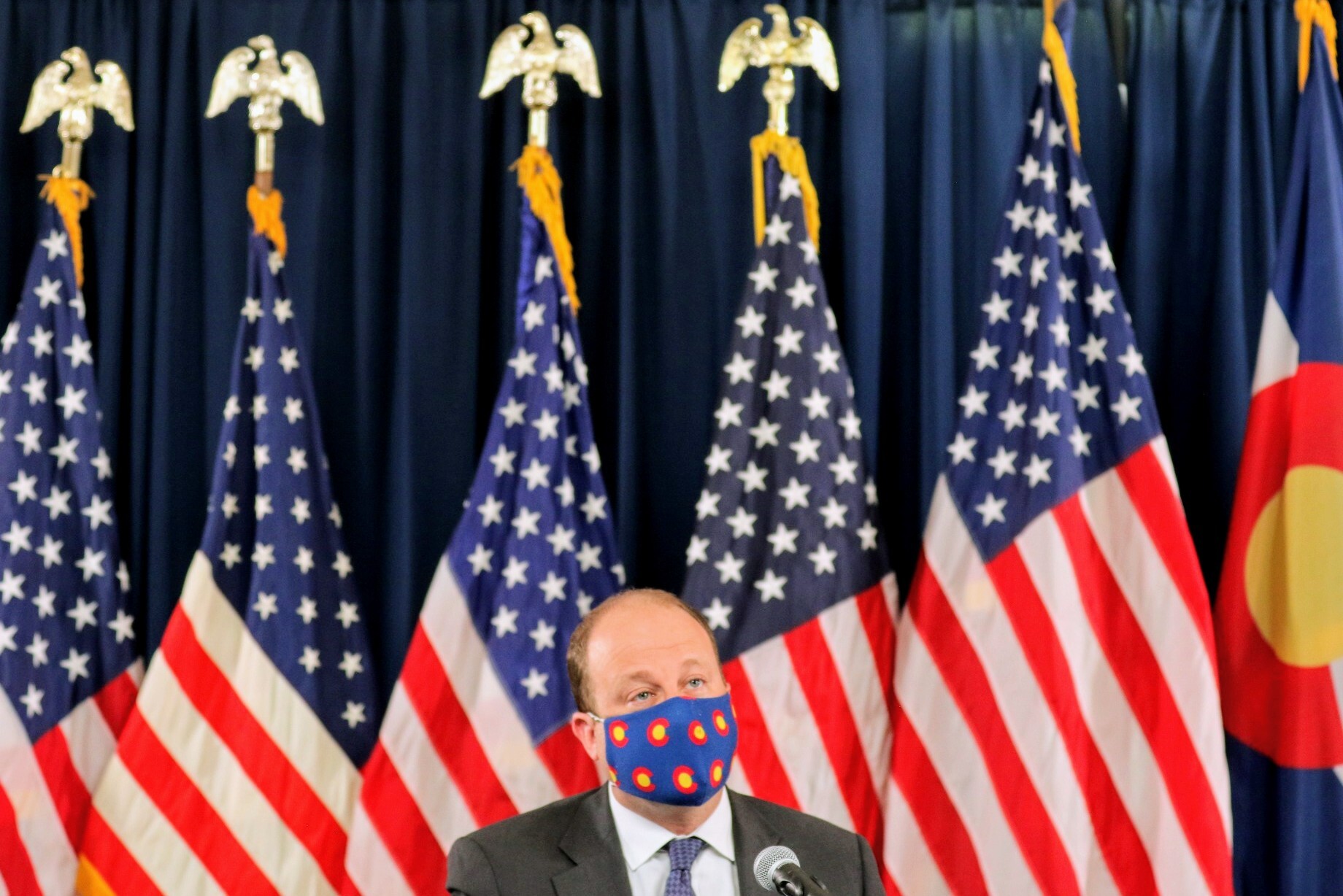
Gov. Jared Polis announced a statewide mask mandate on Thursday, July 16, to take effect at midnight that day.
Up until now, Polis had stuck with approach of trusting citizens and business to wear masks, as well as leaving it to local elected officials to decide. Data that showed that Colorado was seeing an uptick in cases and evidence that mask ordinances encourage more mask-wearing are what changed his mind.
Here's what you need to know about the mask order according to state officials.
When do I have to wear a mask?
The situations in which you do have to wear a mask are very far-reaching. The state says:
- When entering or moving within any public indoor space.
- While using or waiting to use public (buses, light-rail) or non-personal (taxis, car services, ride-shares) transportation services.
When do I not have to wear a mask in public?
The state says you do not have to wear a mask if or when you are:
- Hearing-impaired or otherwise disabled or who are communicating with someone who is hearing impaired or otherwise disabled and where the ability to see the mouth is essential to communication.
- Seated at a food service establishment.
- Exercising alone or with others from the individual’s household, and a face covering would interfere with the activity.
- Receiving a personal service where the temporary removal of the face-covering is necessary to perform the service.
- Entering a business or receiving services and are asked to temporarily remove a face covering for identification purposes.
- Are actively engaged in a public safety role such as law enforcement, firefighters, or emergency medical personnel.
- Officiating at a religious service.
- Giving a speech for broadcast or an audience.
What ages have to wear a mask?
Every Coloradan aged 11 or above has to wear a mask. Those 10 and under do not. The state says this is because evidence shows young children are "much less likely to spread COVID-19" and, to no surprise for parents, kids have a harder time wearing masks correctly.
What is a public indoor space?
Pretty much anywhere that is not your own residence. A residence does include "a room in a motel or hotel or a residential room for students at an educational facility," as defined by health officials.
Here's a list from the state of a few examples (they specifically say the definition is not limited to these spaces):
- Government buildings
- Nonprofits
- Transportation
- Houses of worship
- Private country clubs or social clubs
- Grocery stores
- Hair salons
- All offices, lobbies, elevators
- Malls, retail stores
- Indoor businesses, common areas
- Medical facilities, nursing homes
- Restaurants (if not seated)
- Libraries
- Museums
- Theaters
- Casinos
- Gyms, including areas around indoor pools but not while swimming in the pool
- If a business or entity provides services or goods both indoors and outdoors at a single location, a mask must be worn in the indoor portion of that business or entity
- All enclosed indoor areas, whether publicly or privately owned or managed, except an individual’s residence
What about when I'm exercising indoors, like at a gym?
If you are working out by yourself indoors or with members of your household, you do not have to wear a mask.
But if you are indoors with group of people, a mask is required.
You do not have to wear a mask while you are actively swimming, but you do have to wear one while you are by the pool.
What about exercising outdoors —running, biking, hiking, walking around the neighborhood?
The executive order does not state that you must wear a mask outdoors, unless you are waiting on public or non-personal transportation.
The order does say it is best to wear a mask whenever you cannot keep a safe distance (at least 6 feet) from other people, and encourages mask wearing in crowded spaces, either indoors or out.
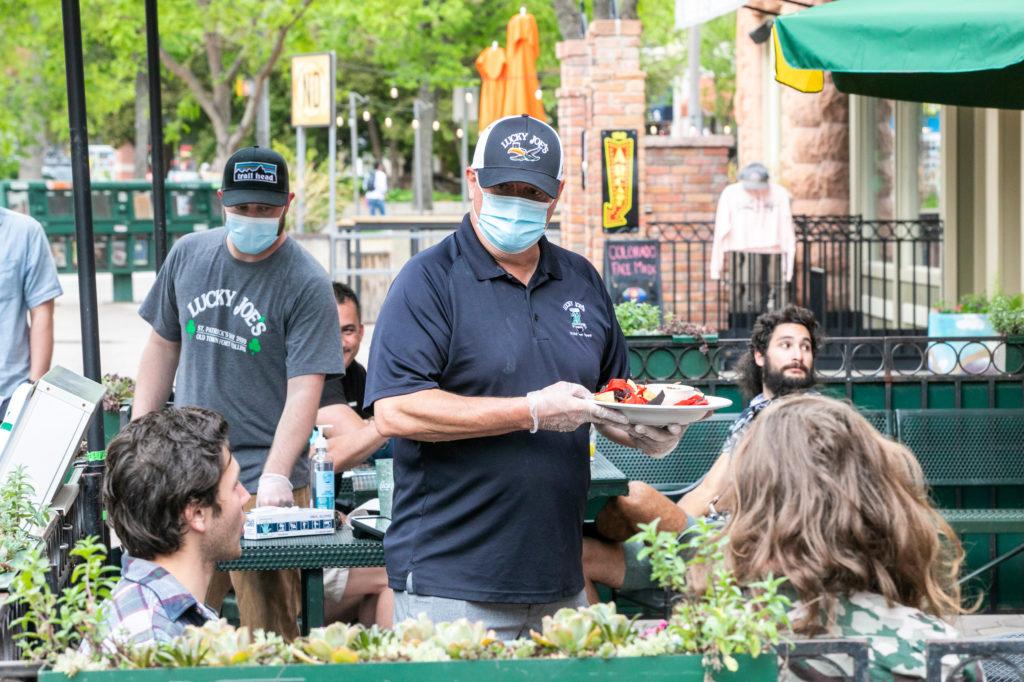
How do restaurants work?
You do not have to wear a mask once you are seated, but you do while you are waiting for your table or when you get up to use the restroom.
Can I face consequences for not wearing a mask?
Yes. This rule is an executive order, and that means it can be enforced with civil or criminal penalties.
If you refuse to wear a mask in a business, you can be prosecuted for trespassing.
Businesses who do not enforce the mask rule can have their licenses revoked.
What if I'm medically unable to wear a mask?
The state does exempt "people who cannot medically tolerate a face covering" from wearing masks.
But the definition for that group is pretty narrow: "a person who has trouble breathing or anyone who is unconscious, incapacitated, or otherwise unable to remove the cloth face-covering without assistance." The CDC has more details about that.
That definition does not include people who claim that wearing a mask will give them carbon dioxide poisoning or lower their oxygen levels, which are both false. The state quotes the Mayo Clinic:
"For many years, health care providers have worn masks for extended periods of time with no adverse health reactions. The CDC recommends wearing cloth masks while in public and this option is very breathable. There is no risk of hypoxia, which is lower oxygen levels, in healthy adults. Carbon dioxide will freely diffuse through your mask as you breathe."
Cards that claim to exempt a person from wearing a mask are usually hoaxes and not legally binding.
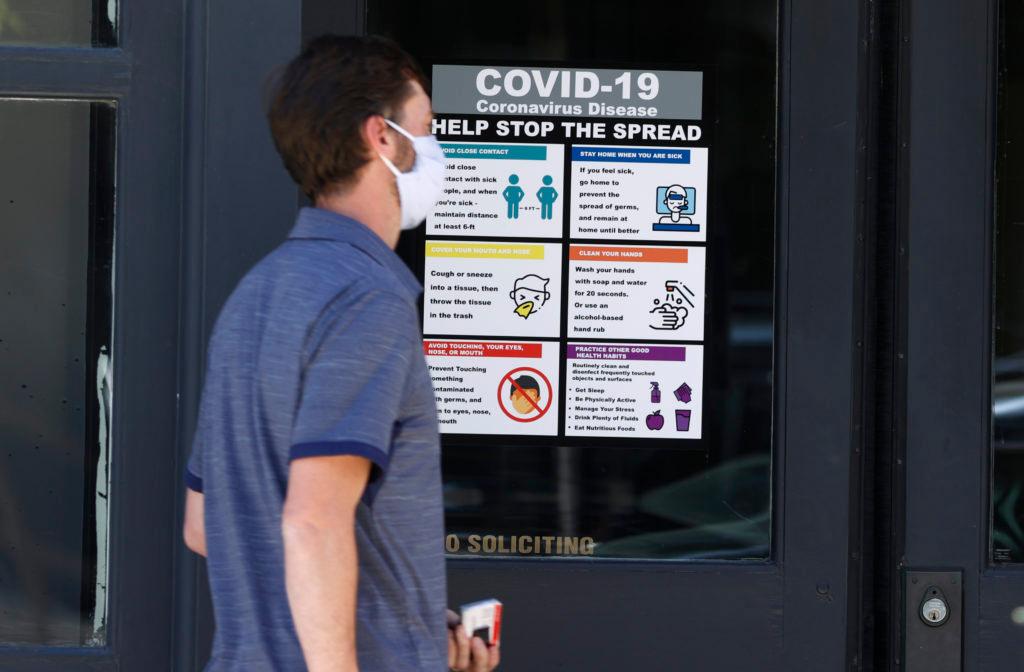
Do I still need to practice social distancing?
Yes! The state recommends that "together, masks and distancing offer a greater measure of protection." Masks are even more vital when it's difficult to stay 6 feet apart.
Can my city or county opt out of the rule?
Only if they meet the state's requirements for Protect Our Neighbors status. Read the full details of that status here.
Can my city or county have a different mask rule than the state's?
They can, but they would be adopting even stricter standards.
Does wearing a mask help stop the spread of disease and keep me and others healthy?
Where can I read the full executive order?
Right here!
